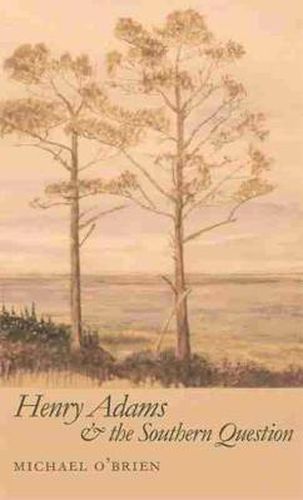Readings Newsletter
Become a Readings Member to make your shopping experience even easier.
Sign in or sign up for free!
You’re not far away from qualifying for FREE standard shipping within Australia
You’ve qualified for FREE standard shipping within Australia
The cart is loading…






Strictly, the Southerner had no mind; he had temperament. He was not a scholar; he had no intellectual training; he could not analyze an idea, and he could not even conceive of admitting two. This judgment, rendered in
The Education of Henry Adams , may be the most quoted of Adams’ writings on the South. It is, however, far from the only one of his beliefs that helped shape a national outlook on the region from the late antebellum period to the present. Thinking about the South, says Michael O'Brien, was
part of being an Adams.
Here O'Brien considers how Adams (grandson of President John Quincy Adams and great-grandson of President John Adams) looked at the region during various phases of his life. At the same time, O'Brien explores the cultural and familial impulses behind those views and locates them in American intellectual history.
$9.00 standard shipping within Australia
FREE standard shipping within Australia for orders over $100.00
Express & International shipping calculated at checkout
Strictly, the Southerner had no mind; he had temperament. He was not a scholar; he had no intellectual training; he could not analyze an idea, and he could not even conceive of admitting two. This judgment, rendered in
The Education of Henry Adams , may be the most quoted of Adams’ writings on the South. It is, however, far from the only one of his beliefs that helped shape a national outlook on the region from the late antebellum period to the present. Thinking about the South, says Michael O'Brien, was
part of being an Adams.
Here O'Brien considers how Adams (grandson of President John Quincy Adams and great-grandson of President John Adams) looked at the region during various phases of his life. At the same time, O'Brien explores the cultural and familial impulses behind those views and locates them in American intellectual history.